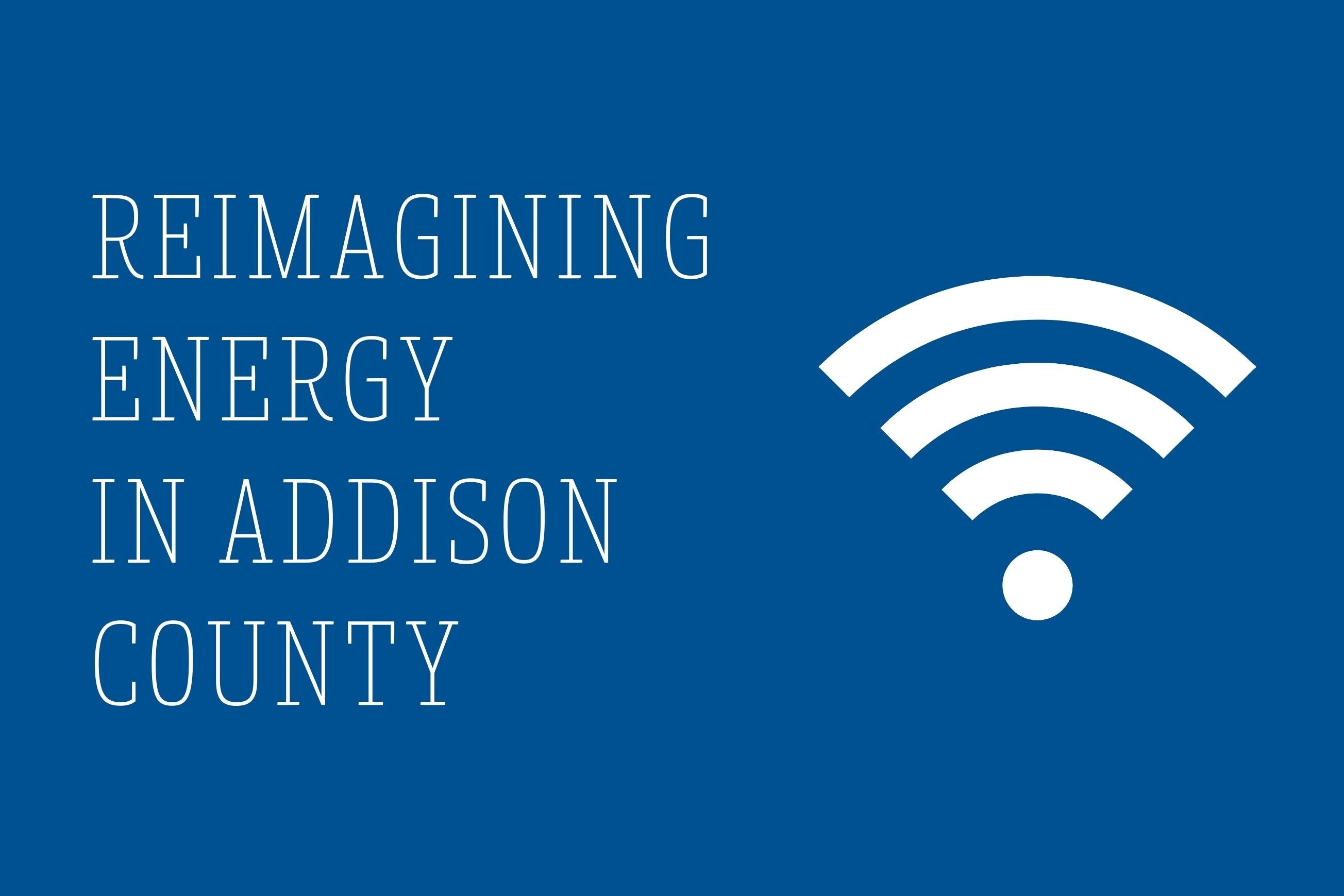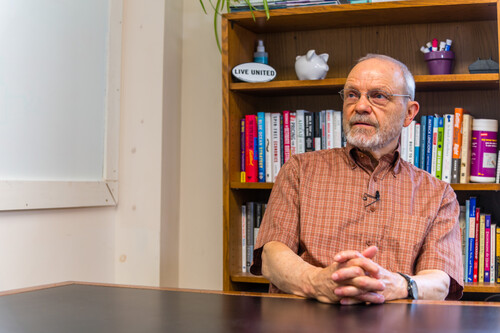
Reimagine Addison County, an initiative coordinated by UWAC, interviewed individuals from businesses, service providers, educators, and more to learn about the strategies, adaptations, and creative and resourceful work they are developing that is leading the way in enhancing the well-being and future of Addison County.
Today, we’re profiling the energy community. We spoke with Spencer Putnam, a board member of the Climate Economy Action Center of Addison County (CEAC), and the Weybridge representative for the Maple Broadband project. The mission of CEAC is to achieve significant, sustainable reductions in local greenhouse gas emissions from people, businesses, and institutions in the community. Maple Broadband is working to make a high-speed, reliable, affordable fiber internet network available to all unserved and underserved households and businesses in the county.
Where it Started
Spencer spoke with us about his experiences with the CEAC and the Maple Broadband project over the past few years. CEAC grew out of work from the Vermont Council on Rural Development; its’ purpose—to reduce greenhouse gas emissions in Addison County and build a strong post-fossil fuel economy. The CEAC started developing a Climate Action Plan for Addison County in late 2020. They gathered a group of people representing three sectors: agriculture, transportation, and buildings (heating/cooling/lighting), and they came up with strategic goals to reduce emissions in those three sectors by 2030.
The goal of the Maple Broadband project is to bring fiber optic cable internet to the entire county, specifically to people and areas with very slow or no internet connection at all. Maple Broadband is a municipal entity comprised of 20 member towns that have banded together to improve their internet service; Spencer is the delegate for Weybridge. Rural areas like Addison County are behind the connectivity curve, but projects like these are working to change that.
Where it Paused
During the pandemic, CEAC paused all its public events and in-person meetings and pivoted to providing more regular electronic newsletters and website updates. They also used the time to produce a series of articles and commentaries to delve into what is needed for Addison County to reduce its current carbon emissions by half by 2030—a challenging but hopefully attainable goal.
Maple Broadband saw construction costs go up, driven by the pandemic and scarcity of fiber, materials, and labor, also due to the pandemic. They anticipate that the system will be built in three or four phases, with Phase I beginning in 2022.
Where it’s Going
The CEAC has interviewed over 50 community leaders to get their views on how to best address greenhouse gas emissions in the county. They spoke with people with experience in the three areas of agriculture, transportation, and buildings. According to Spencer, they “analyzed what people said and looked for themes, suggestions, and problems.” Now they are refining that information into specific actions that can be taken and are finalizing a Climate Action Plan to address the climate crisis while still growing the community, economy, and social institutions.
The Maple Broadband project is hoping to start providing services in 2022, crucial to the development and sustainability of Addison County.
Having high-speed internet everywhere affects things like real estate; people ask about internet connection when looking for a place to move. It affects people’s ability to be flexible about where they live and work and will attract people to this area. It also has an environmental effect because meetings can be held without people traveling, using fossil fuels to get around. This project will have a positive social, economic, and environmental effect on all of us.”
- Spencer Putnam, CEAC and Maple Broadband representative
For More Information:
UWAC Policy Priority: Workforce
The Climate Economy Action Center of Addison County
Maple Broadband
